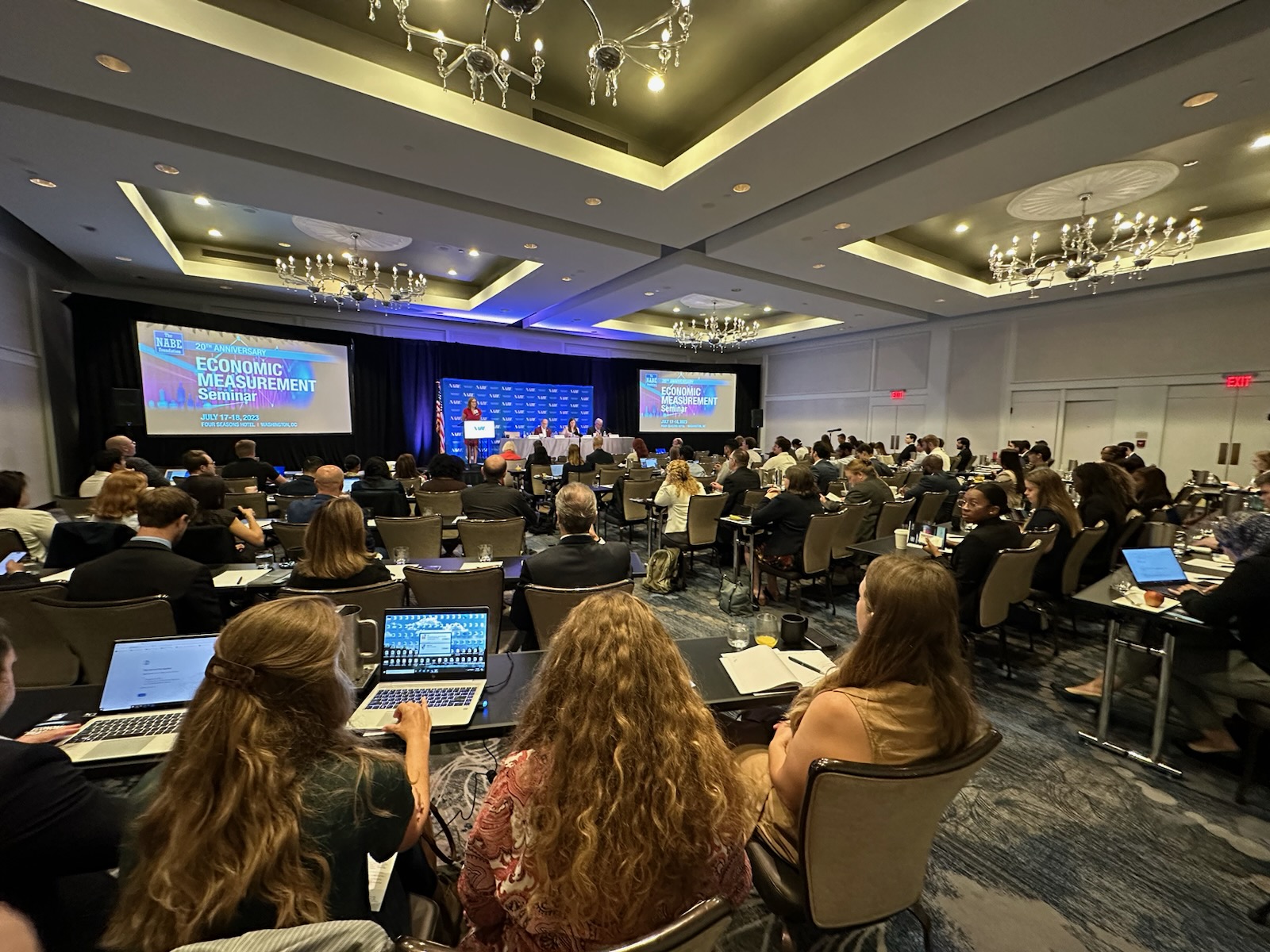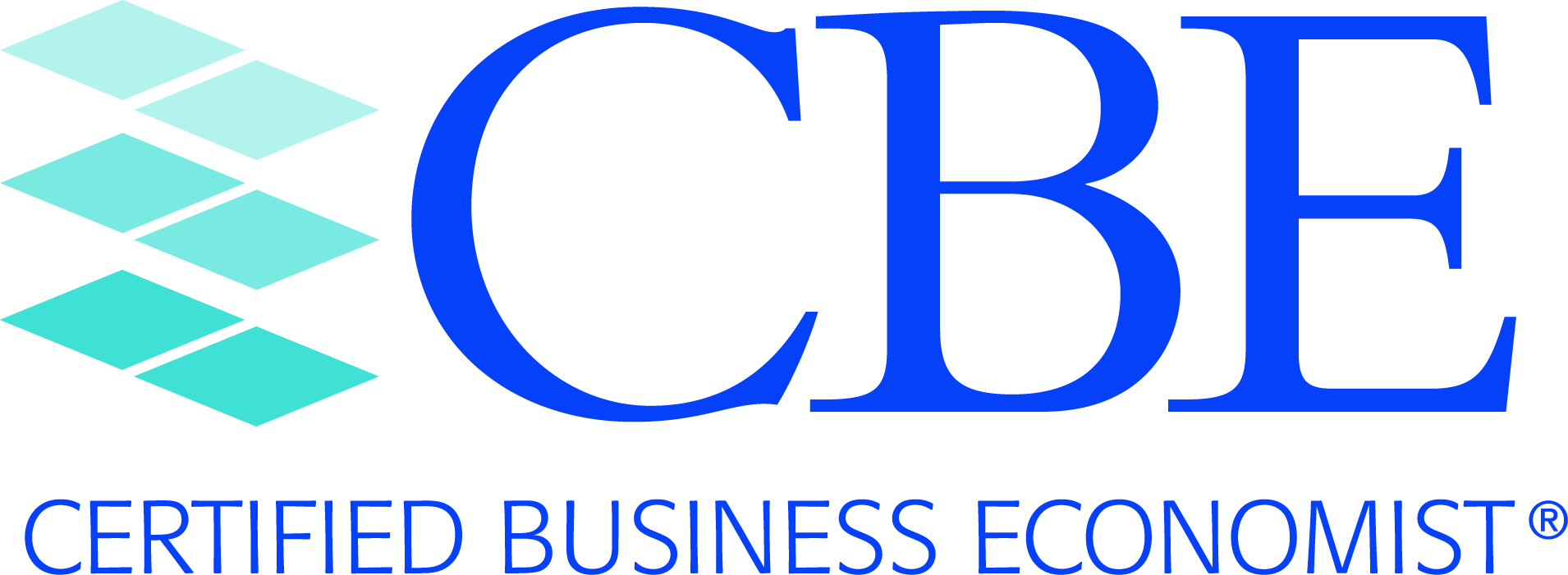In today’s highly-competitive business climate, it is vital that economists and analysts possess a firm grasp of the economic data that factor into business decisions, drive economic modeling, and influence policy debates. Understanding how the data are constructed is a prerequisite for accurate interpretation and analysis.
Now in its 21st year, the Economic Measurement Seminar (EMS) presented by The NABE Foundation is a convenient, cost-effective program designed to strengthen your knowledge of economic statistics and analytical techniques, enhancing your ability to add value in your workplace.
FREE EMS Preview Webinar - Why Are Economic Data Seasonally Adjusted?
LISTEN NOW! Measurement Mondays Limited Podcast Series
The EMS pairs expert data producers with prominent data users to provide you with insights into how statistics are compiled and how data are used to track the macroeconomy -- more than 100 data series are covered over the course of two days! See full list here. EMS attendees also earn the Certificate in Economic Measurement.
EMS attendees will gain:
- a comprehensive knowledge of the most important measures of U.S. economic activity, including employment, inflation, GDP, corporate profits, and real estate trends
- insight into how economic statistics are collected and compiled by federal agencies and private sector data providers
- an understanding of how to use available data to make informed business decisions
- strengths and limitations of various data series
- the critical knowledge needed to prepare for NABE’s CBE Exam
- an expanded network!
Past EMS attendees and presenters have come from a variety of fields, spanning private sector, policy, and academic disciplines. Financial analysts, economists, statisticians, strategists, and others are represented, creating a unique forum for learning and networking.

Early career professionals and first-time attendees typically focus on Track A sessions. Seasoned professionals and repeat attendees look to Track B sessions for a deeper dive on specialized topics. Or….mix and match sessions from both tracks to customize your learning experience!
Need help making the case to your employer as to why you should attend? Check out the Attendance Justification Toolkit.
 Preparing to sit for the CBE Exam and become a Certified Business Economist? Be sure to attend these sessions covering CBE content:
Preparing to sit for the CBE Exam and become a Certified Business Economist? Be sure to attend these sessions covering CBE content:
Financial Accounts: The Quarterly Data and the Stories They Tell
GDP and the National Accounts: The Building Blocks of the Economy
International Trade and Finance
Measuring Employment: Using and Interpreting Employment Statistics
Inflation: What It Is and How It Is Measured
Productivity: The Key to Understanding Economic Growth
View full program
 The Economic Measurement Seminar is a component of the Certified Business Economist® (CBE) program, the certification in applied economics and data analytics, and qualifies for continuing education hours for CBEs. EMS sessions that are part of the CBE core curriculum have been highlighted.
The Economic Measurement Seminar is a component of the Certified Business Economist® (CBE) program, the certification in applied economics and data analytics, and qualifies for continuing education hours for CBEs. EMS sessions that are part of the CBE core curriculum have been highlighted.
CBE Courses

Plus! Take control of your career trajectory - master the top skills sought by employers with certificate courses in Writing Skills and Communication/Presentation Skills for Business Economists and Analysts. Both courses are prerequisites for earning the CBE designation.
July 17, 2024
Writing Skills for Business Economists & Analysts
8:30 AM - 4:30 PM
Four Seasons Hotel
Washington, DC
July 18-19, 2024
Communication & Presentation Skills for Business Economists & Analysts
2 days, 8:30 AM - 4:30 PM
Four Seasons Hotel
Washington, DC
Health/Safety Guidelines:
Effective November 29, 2022, NABE will no longer require proof of vaccination status to attend a NABE in-person meeting or event. Mask-wearing at NABE meetings and events is optional.
Instead, NABE expects attendees to take responsibility themselves for following guidance from the Centers for Disease Control (CDC) on measures to reduce infection from COVID-19 and to protect against severe complications. NABE encourages all attendees to follow the CDC’s recommendation that everyone over age five receive one dose of an updated COVID-19 vaccine. For more information, please review the guidelines here.
All attendees are asked to take an at-home COVID-19 rapid antigen test before traveling to any NABE meeting and should not attend if they test positive or have symptoms of COVID-19. NABE will also have COVID tests available onsite. NABE will not be requiring proof of these measures, but calls on the NABE community to act responsibly and with consideration for the health and safety of others.
Code of Conduct:
We expect all participants in NABE programs to adhere to a high standard of professional conduct, respecting other participants and adhering to the NABE Code of Conduct.
NABE Events Ombudsperson:
NABE has recently retained an Ombuds to serve as a confidential, impartial, and informal resource for members of our community. The Ombuds helps individuals manage conflicts, express concerns, and resolve disputes without fear of retaliation, by providing impartial guidance in a confidential setting. Further details on the Ombuds program can be found in the NABE Ombuds Terms of Reference. Robyn Klinger is a member of the International Ombudsman Association and may be reached at [email protected].